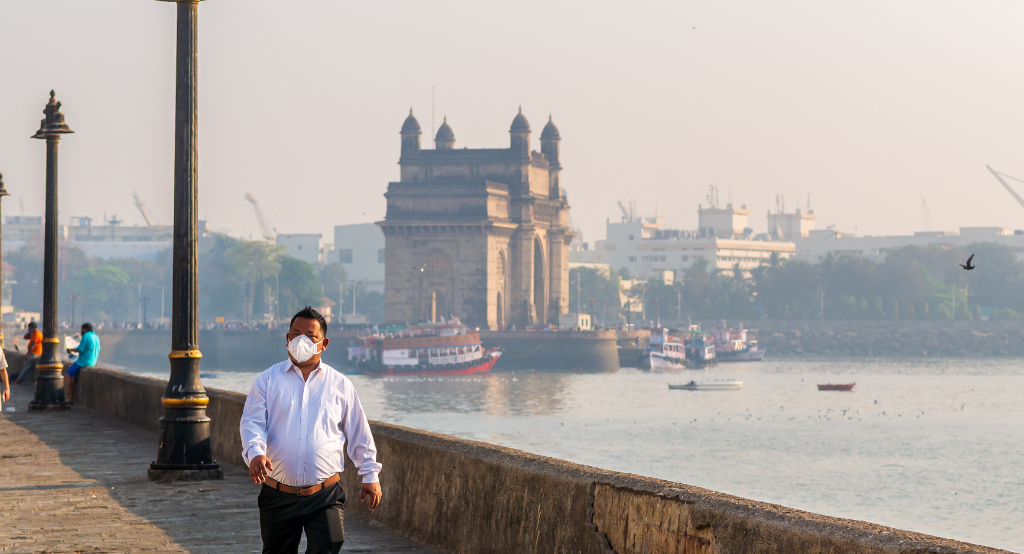City Solutions to Air Pollution

Air pollution is a pressing global issue with far-reaching consequences on human health and environment. It transcends national borders, affecting people worldwide. Region specific solutions, spearheaded by city leadership and collaborative initiatives, play a crucial role in addressing this concern. This idea was demonstrated in the City and Climate: Air webinar, conducted by the City Diplomacy Lab and Columbia Global Centers | Paris, in collaboration with Columbia Global Centers | Mumbai, Columbia Climate School, and the Commonwealth Local Government Forum on November 22, 2023. This webinar, part of the Cities and Climate Solution series, gathered representatives from cities like Lagos, Leeds, Mumbai, and Stockholm, who shared unique and city-specific strategies to combat air pollution.
Ms. Olabisi Shonibare, from Lagos State Environmental Protection Agency, emphasized that rapid urbanization had led to increased vehicular emissions, industrial activities and infrastructure projects, severely compromising the city’s air quality significantly. The focus of local city authorities currently is on actively collecting data to pinpoint sources of air pollution and design tailored solutions. Improving public transport and promoting its usage are also key priorities.
The direct effect of air pollution on the well-being of urban residents impedes their ability to enjoy open spaces. In response, the city of Leeds in the United Kingdom has undertaken an initiative to establish exclusive open spaces, entirely devoid of private transport. This measure not only purifies the air but also ensures secure spaces for citizens to gather and have a sense of belongingness to the city. Mr. Andrew Hickford, a representative from Leeds City Council's Climate, Energy & Green Spaces, highlighted that this approach effectively encouraged use of public transport and promoted utilization of public resources.
Like Leeds and Lagos, Stockholm too grapples with rising vehicle numbers, contributing to increased emissions and declining air quality. Outdated practices and machinery pose a barrier in addressing this challenge. Dr. Magnuz Enghardt, from Stockholm's Environment and Health Administration Department, illustrated such a case. He explained that climate change has significantly diminished snowfall, rendering studded tires popularly used in colder regions obsolete. Unlike many other cities, this issue is unique to Scandinavian countries. To combat air pollution, Stockholm has implemented measures such as a ban on studded tires, along with congestion bans and adopting dust-binding measures. This has shown a significant improvement in their air quality.
Meanwhile, in India, Delhi, a landlocked city, is notorious for its poor air quality, and Mumbai is closely following suit. The frenzy to complete infrastructure and construction projects after the Covid-19 lockdowns, coupled with shifting weather conditions, has significantly deteriorated the coastal city’s air quality over the past few years. Although this issue is relatively recent, local authorities have recognized its urgency and made it a top priority, stated Ms. Revati Shidhaye, Assistant Engineer in the Environment Department of the BrihanMumbai Municipal Corporation (BMC). She noted that the city recently conducted air purifier pilots and identified key locations to install these purifiers. Additionally, the BMC has made considerable investments in electric vehicles and is committed to transitioning to an all-electric public transport fleet.
The webinar highlighted that city-level governments are instrumental for coping with air pollution and implementing tailored solutions to improve the well-being of city dwellers. The event gathered audiences from across the world and raised important questions for the representatives on policy design and their commitment to ensure improvement in air quality in their respective cities.